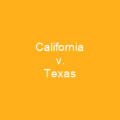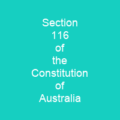What is Constitutionality?
Have you ever wondered how laws and acts are judged against a nation’s constitution? In constitutional law, constitutionality refers to acting in accordance with an applicable constitution.
Laws and Acts: The Test of Time
In simpler terms, if a law or act directly violates the constitution, it is considered unconstitutional. But what happens when laws are passed that don’t seem to align with the constitution? Can they be challenged, and by whom?
Declarations of Unconstitutionality
An act or statute may be declared unconstitutional by any court if it conflicts with the constitution. This means that if a law is found to violate constitutional principles, it can be struck down. But who enforces these laws? Governments themselves are responsible for enforcing laws set forth in their constitution, which can make an act or law void if it is found to conflict with the document defining the government.
The Role of Legal Systems
But how does a legal system determine whether a statute can be declared unconstitutional and who has authority to do so? The type of legal system plays a crucial role. In some countries, laws are unreviewable by courts unless they have a codified constitution, while others rely on a supreme court or constitutional court for final opinions on constitutionality.
Exceptions and Vulnerabilities
It’s worth noting that constitutions typically only apply to government actions. This can make them vulnerable to being violated by governments themselves, with exceptions depending on the country’s specific circumstances. How can we ensure that our governments act in accordance with constitutional principles?
The Constitution as a Guiding Light
Imagine the constitution as a lighthouse guiding ships through treacherous waters. Just like how a lighthouse ensures safe passage, constitutions aim to guide and protect citizens from governmental overreach. But what happens when the light is dimmed or obscured? How can we ensure that our constitutional principles remain clear and unambiguous?
Conclusion
In conclusion, constitutionality is not just a legal concept; it’s a fundamental principle that ensures the balance of power in governance. By understanding how laws are declared unconstitutional and who has the authority to do so, we can better appreciate the importance of constitutional law in safeguarding our rights and freedoms.

You want to know more about Constitutionality?
This page is based on the article Constitutionality published in Wikipedia (retrieved on December 25, 2024) and was automatically summarized using artificial intelligence.






